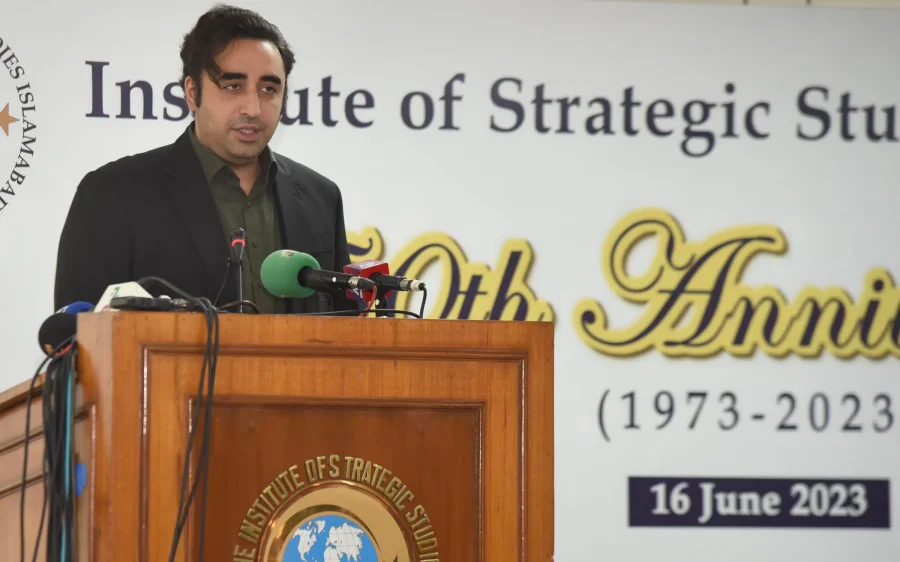Foreign Minister Bilawal Bhutto Zardari has said that the relationship with India is marked by an atmosphere of mistrust, primarily due to New Delhi’s illegal and unilateral actions of August 5, 2019. However, Pakistan is committed to having cooperative and good-neighbourly relations with India, on the basis of mutual respect and sovereign equalities, he maintained.
He made these remarks during his address at a ceremony in Islamabad commemorating the 50th anniversary of the Institute of Strategic Studies Islamabad on Friday.
“To move forward, India will have to address the obstacles that hinder peaceful coexistence, reverse its illegal measures in IIOJK, and create an enabling environment for meaningful engagement and result-oriented dialogue,” Bilawal remarked.
The foreign minister said that Pakistan remains committed to a peaceful resolution of the Jammu and Kashmir dispute in accordance with the UN Security Council resolution and the wishes of the Kashmiri people.
“If this dispute is resolved in a just and fair manner, not only a durable peace will be established in South Asia but also the peace dividends would contribute to the well-being and prosperity of the one-fifth of humanity residing in our region,” he added.
“I had the opportunity to visit GOA this year to participate in the SCO-CFM. The SCO Heads of State meeting is going to be held soon in India. As Pakistan was considering mode of Prime Minister’s participation in the SCO summit, India announced holding the summit in virtual format,” he added.
Bilawal said that Pakistan is committed to engagement through multilateral organisations including SCO, the UN and other multilateral organisations.
He said that when the incumbent government assumed office in April 2022, it faced serious challenges on the diplomatic front. “Despite that, we diligently pursued a foreign policy aimed at addressing our national challenges, opening doors for our people, improving access of our goods and services, preserving sovereign decision-making at multilateral fora and promoting multilateralism and international law while amplifying Pakistan’s viewpoint at the regional and global level,” he added.
He said that addressing Pakistan’s domestic issues required quick rebuilding of ties and restoring trust with key capitals and reinvigorating substantive engagement with the country’s traditional partners.
“Pakistan is committed to forging good relations with all major powers. Beyond the US and China, this includes Russia, Europe and Japan as well as ASEAN and the Republic of Korea. We reinforced and deepened our traditional partnerships with Saudi Arabia, the United Arab Emirates, Turkiye, Iran, and Qatar. We see a positive trend in Pakistan-Africa bilateral linkages in terms of trade, political, parliamentary, military and security cooperation,” he added.
Bilawal said that Pakistan has clearly voiced its opposition to any bloc politics or relapse into the Cold War, saying that forging military alliances and assigning the role of “net security provider” to some countries at the expense of others is fraught with grave consequences.
“In our view, the main driver for international relations should be cooperation, not confrontation. There is everything to be gained from economic inter-dependence and peaceful coexistence; and everything to lose from a mindless drift into confrontation and conflict. We hope prudence will prevail and the world would step back from the precipice.”










